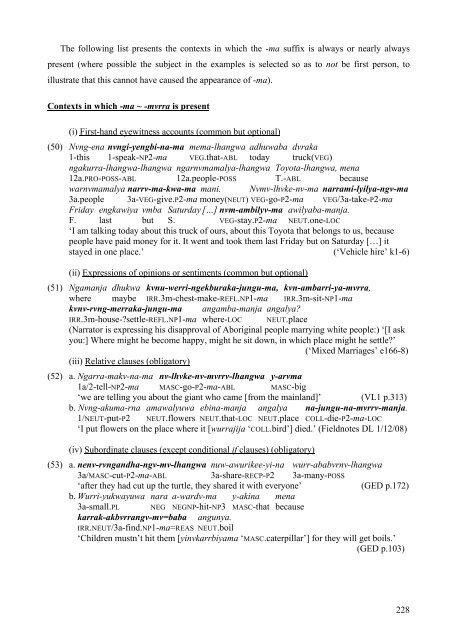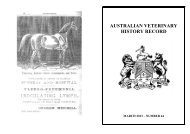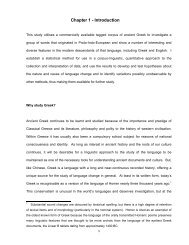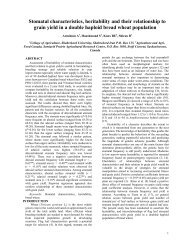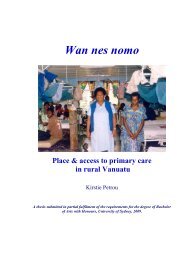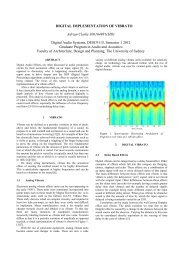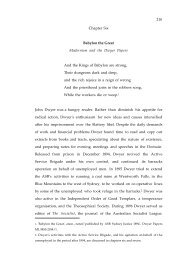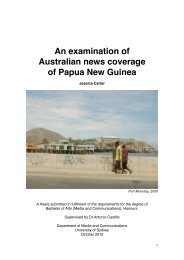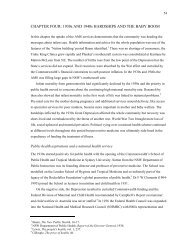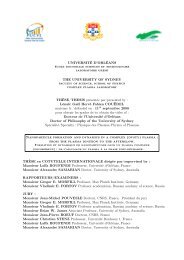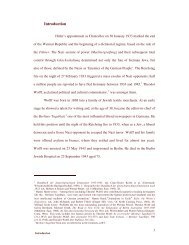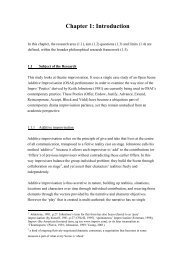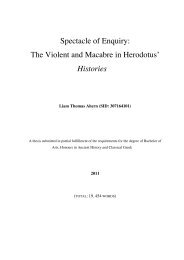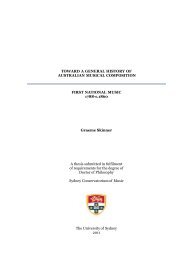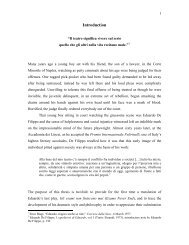Chapter 6: Tense, aspect and mood
Chapter 6: Tense, aspect and mood
Chapter 6: Tense, aspect and mood
Create successful ePaper yourself
Turn your PDF publications into a flip-book with our unique Google optimized e-Paper software.
The following list presents the contexts in which the -ma suffix is always or nearly always<br />
present (where possible the subject in the examples is selected so as to not be first person, to<br />
illustrate that this cannot have caused the appearance of -ma).<br />
Contexts in which -ma ~ -mvrra is present<br />
(i) First-h<strong>and</strong> eyewitness accounts (common but optional)<br />
(50) Nvng-ena nvngi-yengbi-na-ma mema-lhangwa adhuwaba dvraka<br />
1-this 1-speak-NP2-ma VEG.that-ABL today truck(VEG)<br />
ngakurra-lhangwa-lhangwa ngarnvmamalya-lhangwa Toyota-lhangwa, mena<br />
12a.PRO-POSS-ABL 12a.people-POSS T.-ABL because<br />
warnvmamalya narrv-ma-kwa-ma mani. Nvmv-lhvke-nv-ma narrami-lyilya-ngv-ma<br />
3a.people 3a-VEG-give.P2-ma money(NEUT) VEG-go-P2-ma VEG/3a-take-P2-ma<br />
Friday engkawiya vmba Saturday […] nvm-ambilyv-ma awilyaba-manja.<br />
F. last but S. VEG-stay.P2-ma NEUT.one-LOC<br />
‘I am talking today about this truck of ours, about this Toyota that belongs to us, because<br />
people have paid money for it. It went <strong>and</strong> took them last Friday but on Saturday […] it<br />
stayed in one place.’ (‘Vehicle hire’ k1-6)<br />
(ii) Expressions of opinions or sentiments (common but optional)<br />
(51) Ngamanja dhukwa kvnu-werri-ngekburaka-jungu-ma, kvn-ambarri-ya-mvrra,<br />
where maybe IRR.3m-chest-make-REFL.NP1-ma IRR.3m-sit-NP1-ma<br />
kvnv-rvng-merraka-jungu-ma angamba-manja angalya?<br />
IRR.3m-house-?settle-REFL.NP1-ma where-LOC NEUT.place<br />
(Narrator is expressing his disapproval of Aboriginal people marrying white people:) ‘[I ask<br />
you:] Where might he become happy, might he sit down, in which place might he settle?’<br />
(‘Mixed Marriages’ e166-8)<br />
(iii) Relative clauses (obligatory)<br />
(52) a. Ngarra-makv-na-ma nv-lhvke-nv-mvrrv-lhangwa y-arvma<br />
1a/2-tell-NP2-ma MASC-go-P2-ma-ABL MASC-big<br />
‘we are telling you about the giant who came [from the mainl<strong>and</strong>]’ (VL1 p.313)<br />
b. Nvng-akuma-rna amawalyuwa ebina-manja angalya na-jungu-na-mvrrv-manja.<br />
1/NEUT-put-P2 NEUT.flowers NEUT.that-LOC NEUT.place COLL-die-P2-ma-LOC<br />
‘I put flowers on the place where it [wurrajija ‘COLL.bird’] died.’ (Fieldnotes DL 1/12/08)<br />
(iv) Subordinate clauses (except conditional if clauses) (obligatory)<br />
(53) a. nenv-rvng<strong>and</strong>ha-ngv-mv-lhangwa nuw-awurikee-yi-na wurr-ababvrnv-lhangwa<br />
3a/MASC-cut-P2-ma-ABL 3a-share-RECP-P2 3a-many-POSS<br />
‘after they had cut up the turtle, they shared it with everyone’ (GED p.172)<br />
b. Wurri-yukwayuwa nara a-wardv-ma y-akina mena<br />
3a-small.PL NEG NEGNP-hit-NP3 MASC-that because<br />
karrak-akbvrrangv-mv=baba angunya.<br />
IRR.NEUT/3a-find.NP1-ma=REAS NEUT.boil<br />
‘Children mustn’t hit them [yinvkarrbiyama ‘MASC.caterpillar’] for they will get boils.’<br />
(GED p.103)<br />
228


